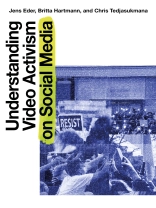What political power do videos on social media have? In what ways do they exert influence, shape publics and change political life? And how can committed civil society actors in this field assert themselves against hegemonic discourses, commercial interests, anti-democratic agitation, and authoritarian propaganda? These questions are being debated intensely as social media increasingly dominate global information flows, and videos increasingly dominate social media.
Understanding video activism seems particularly relevant at a time when the internet is undergoing fundamental disruptions. The forms, practices, and opportunities of activism depend on its media environment, which now is changing rapidly and profoundly in terms of its technological basis, ownership, legal regulations, and governmental control.
Jadual kandungan
Acknowledgements
- Political Contexts and Frames of Video Activism
- Common Forms and Types of Activist Videos
- The System of Social Media Platforms
- The Platform System in the Age of the Splinternet
- How to Outsmart Platforms: The Most Boring Viral Video
- Demanding Representation, Criticising Capitalism
- Participation and a Voice of One’s Own
- Political Aesthetics
- The Role of Media Technology in the History of Video Activism
- Videos Everywhere: Between Empowerment and Disillusionment
Pathways to Impact
Competing for Attention, Overcoming Obstacles
Image Wars in the Discourse on Migration
Political Emotions and the Different Audiences of Activism
- Video Aesthetics and Spreadability: A Variety of Effective Forms
- The Dynamics of Distribution: Networked Attention and Emergent Narratives
- General Video Strategies in the Climate Crisis Discourse
- A Case of Strategic Provocation: Rezo’s Destruction of the CDU
- Small Media Collectives: Committed and Counterpublic
- Fig. 11: Leftvision: Welcome to Hell – Polizei zerschlägt G20-Demo in Hamburg 2017 (‚Police Smashes G20 Demonstration in Hamburg‘, Germany 2017)
- Influencer Networks: Hybrid and Hypervisible
- Large NGOs: Established and Evolving
- Hashtag Movements: Polyphonic and Unpredictable
- Embracing the Diversity of Video Activism
- Publics and Counterpublics
- Creating Counterpublics: The Case of Black Lives Matter
- Expanding the Democratic Public Sphere
- Video Activism at War: Changing Contexts, Shifting Roles
- Video Activism under Pressure
- A Plea for Diversity in Solidarity
Films and Videos
Bibliography
Mengenai Pengarang
Jens Eder teaches media studies, aesthetics and narrative theory at the Filmuniversität Babelsberg KONRAD WOLF, Potsdam, Germany. His research focuses on contemporary audiovisual media, their forms, effects and relations to society. Britta Hartmann teaches film studies and audiovisual media cultures at the University of Bonn, Germany. Her research focuses on film theory and aesthetics, documentary history and practice. She is one of the founding editors of the journal Montage AV. Chris Tedjasukmana is Professor of Everyday Media and Digital Cultures at the Johannes Gutenberg University of Mainz, Germany. His current research focuses on media practices of witnessing, critical phenomenologies of media bodies, and political film aesthetics.





